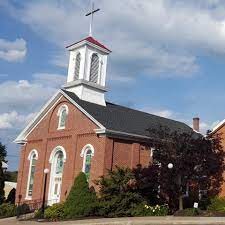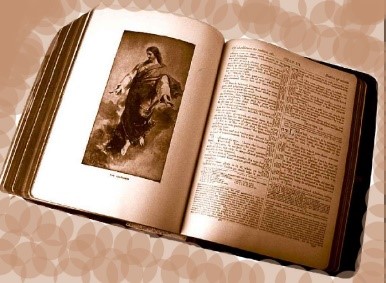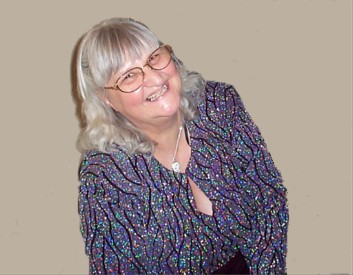United Reformed Churches in North America (URCNA)

The United Reformed Churches in North America (URCNA is a Reformed Evangelical Protestant that is governed like Presbyterian. It has is origin since 1996 in Lynwood, Illinois. It is a merge of Orthodox Christian Reformed Churches. United Reformed Churches in North America (URCNA) is a federation of churches united in faith and confession, training the ministry of reconciliation by proclaiming the gospel of Jesus Christ to the ends of the earth. They believe the church possesses a spiritual unity in Christ and in the Holy Scriptures. The churches in the federation unite with other like-minded churches. They share a common confession and church order.
They affirm the central truths of the Bible founded in the Protestant Reformation. These biblical truths are summarized in the Heidelberg Catechism, Belgic Confession, and Canons of Dort. They affirm the sovereignty of God over every area of life. And recognize the need for the church to be constantly reforming in the light of the Word of God. They have a Reformed or Presbyterian system of church government in which Christ rules the church through the office of elder.
History:
The United Reformed Churches in North America traces their roots back to the earlier Protestant movements in Europe, and to the Reformed churches in Belgium and the Netherlands. The international Reformed churches met at the Synod of Dort in the Netherlands and there collectively stated their faith, summarizing biblical teachings in the Canons of the Council of Dordrecht from 1618 to 1619.
It was in the 1980’s that a substantial group within the Christian Reformed Church in North America (CRCNA) felt that the denomination was moving away from the truths of the Reformation. This group grew considerably in the 1990’s. The Christian Reformed Alliance was formed in 1990 which become The Alliance of Reformed Churches two years later. There were about 62 churches that met to discuss some kind of a solution to the problem in 1994. Some of them had already left the CRC.
The United Reformed Churches in North America was founded as a federation of Reformed churches in 1996 at Lynwood, Illinois. Most of the members that founded the United Reformed Churches in North America left the CRCNA, due to disagreement on several issues like women’s ordination and evolution cases, and conservative reformed believers were concerned that the Christian Reformed Churches are departing from Scriptural teaching to accommodate modern social trends. They wanted to claim back their original, confessional Reformed roots. The synod in St. Catharines adopted the church Order based on the Church Order of Dort In 1997.
Belief:
The United Reformed Churches in North America believes in the Belgic Confession (1561).
The United Reformed Churches in North America believes in the Heidelberg Catechism (1563).
The United Reformed Churches in North America believes in the Canons of Dort (1618-19).
The United Reformed Churches in North America believes in the ‘Belgic’ Confession of Faith, the Canons of Dort, and the Heidelberg Catechism, which are accepted as official statements of doctrine by many of the Reformed churches.
The United Reformed Churches in North America believes in the teachings of great teachers in the early and medieval church such as Augustine as well as the principles of early church councils and synods such as the Council of Nicea in 325 AD.
The United Reformed Churches in North America believes in many beliefs and teachings of the 16th century Reformation. They have benefitted greatly from Reformers such as Martin Luther (d. 1546) and John Calvin (d. 1564).
The United Reformed Churches in North America believes in Reformed Christian teachers from the 17th-19th centuries.
The United Reformed Churches in North America believes in the Ecumenical creeds is an umbrella term used in the western church to refer to the Nicene Creed, the Apostles’ Creed, and the Athanasian Creed. These creeds are accepted by almost all mainstream Christian denominations in the western church, including the Reformed, Roman Catholic, Anglican and Lutheran churches. A creed by definition is a summary or statement of what one believes; the word originates from the Latin credo meaning “I Believe.”
The United Reformed Churches in North America believes a fundamental doctrine they describe is forensic justification, according to which Christ offers a double benefit: one’s sin is imputed to Christ and he suffers for it on the cross, while His perfect obedience is credited to believers who receive its benefits, including eternal life.
The United Reformed Churches in North America believes do not have a denominational seminary or college; rather, Candidates for Ministry are extensively examined by their Calling Church and Classis regardless of seminary prior to their ordination or installation. Most of the ministers of the URCNA have been trained at Calvin Theological Seminary (Grand Rapids, Michigan), Mid-America Reformed Seminary (Dyer, Indiana), or Westminster Seminary in California (Escondido, California) but the number of other seminaries represented is growing.
Reference:
Official website for the United Reformed Churches in North America: http://urcna.org/
Cite Article Source
MLA Style Citation:
Holstein, Joanne “United Reformed Churches in North America (URCNA):.” Becker Bible Studies Library Nov 2013.<https://guidedbiblestudies.com/?p=2498,>.
APA Style Citation:
Holstein, Joanne (2013, November) “United Reformed Churches in North America (URCNA):.” Becker Bible Studies Library. Retrieved from https://guidedbiblestudies.com/?p=2498,.
Chicago Style Citation:
Holstein, Joanne (2013) “United Reformed Churches in North America (URCNA):.” Becker Bible Studies Library (November), https://guidedbiblestudies.com/?p=2498, (accessed).


